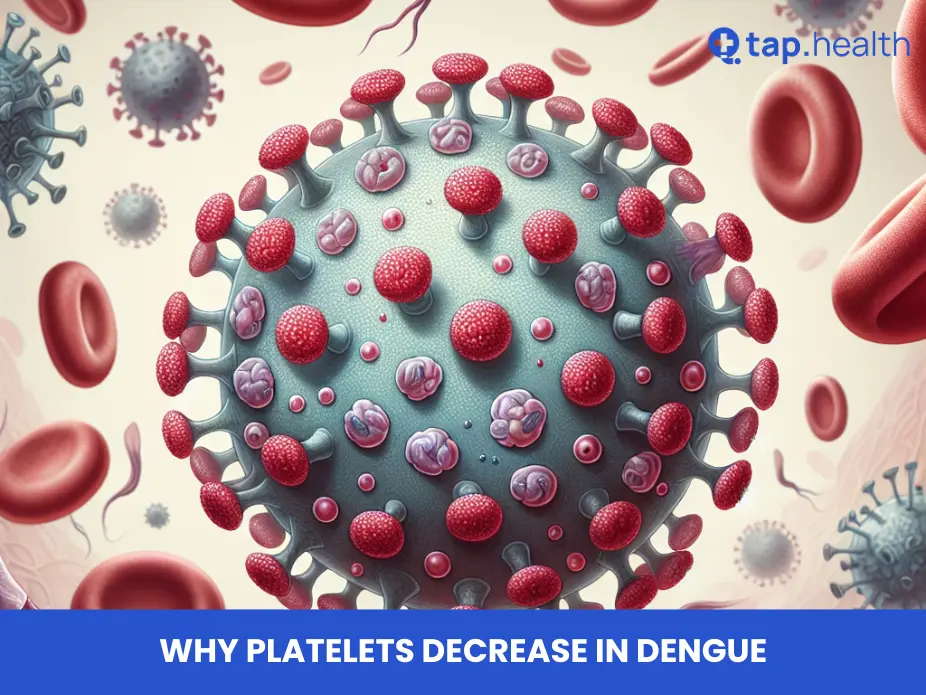Ever Wondered Why a Tiny Mosquito Bite Can Lead to a Dramatic Drop in Your Blood’s Platelet Count?
Imagine enjoying a sunny day in a tropical paradise, only to find yourself battling a mysterious fever that leaves you feeling weak and bruised. This is the reality for millions affected by dengue each year. Let’s dive into why this happens and what it means for those affected.
What is Dengue
Dengue is a mosquito-borne viral infection that poses a significant health threat in tropical and subtropical regions worldwide. The disease is caused by the dengue virus, which is transmitted to humans through the bites of infected female mosquitoes, particularly the Aedes aegypti species. These mosquitoes are well-adapted to urban environments and breed in standing water, making densely populated areas especially prone to outbreaks.
Types of Dengue
There are four distinct serotypes of the dengue virus: DENV-1, DENV-2, DENV-3, and DENV-4. Each serotype can cause the full spectrum of dengue disease. When a person is infected with one serotype, they gain lifelong immunity to that specific serotype but only temporary partial immunity to the others. Because of this, a person can contract dengue up to four times in their lifetime, with each subsequent infection increasing the risk of severe dengue.
Symptoms of Dengue
The symptoms of dengue typically appear 4-10 days after being bitten by an infected mosquito. Common symptoms include:
- High Fever: Rapid rise in temperature, often reaching up to 104°F (40°C).
- Severe Headache: Intense pain, often described as a “band” around the head.
- Pain Behind the Eyes: A distinctive symptom that can be very painful.
- Joint and Muscle Pain: Severe discomfort, sometimes referred to as “breakbone fever.”
- Fatigue: Extreme tiredness and weakness.
- Nausea and Vomiting: Gastrointestinal distress.
- Skin Rash: Appears 2-5 days after the onset of fever and may be itchy.
- Mild Bleeding: Such as nosebleeds, gum bleeding, or easy bruising.
Causes of Dengue
Dengue is caused by the dengue virus, which is transmitted to humans by the bite of an infected mosquito. The virus circulates in the blood of an infected person for 2-7 days, during which time the person can transmit the virus to mosquitoes if bitten. Infected mosquitoes can then spread the virus to other humans through their bites.
Risk Factors of Dengue
Several factors can increase the risk of developing dengue fever:
- Geographic Location: Living or traveling in tropical and subtropical areas where dengue is common.
- Previous Infections: A history of previous dengue infections increases the risk of severe dengue.
- Lack of Mosquito Control: Areas with inadequate mosquito control measures are at higher risk.
- Urbanization: Rapid urbanization without adequate infrastructure can lead to increased mosquito breeding sites.
- Climate: Warm, humid climates are ideal for mosquito breeding.
What Do Low Platelets Mean in Dengue?
Low platelets, or thrombocytopenia, in dengue indicate a reduced number of platelets in the blood. Platelets are small blood cells crucial for blood clotting. A low platelet count can lead to increased bleeding and bruising. In dengue, thrombocytopenia is a common complication and can lead to severe bleeding if not managed properly.
What is the Role of Platelets in an Individual Affected by Dengue?
Platelets play a critical role in blood clotting and wound healing. In dengue, maintaining a healthy platelet count is essential to prevent severe bleeding complications. Platelets also contribute to the immune response, helping the body fight off infections. A significant drop in platelet count can compromise these functions, leading to an increased risk of bleeding and other complications.
Why Platelets Decrease in Dengue
The decrease in platelets during dengue infection can be attributed to several factors:
- Bone Marrow Suppression: The dengue virus can infect the bone marrow, where blood cells, including platelets, are produced. This infection can lead to a decrease in the production of platelets.
- Destruction of Platelets: The immune system may mistakenly target and destroy platelets, thinking they are infected by the virus.
- Increased Consumption: The body may use up more platelets than usual to repair blood vessels damaged by the infection.
- Plasma Leakage: Severe dengue can cause plasma leakage, where the liquid part of the blood seeps out of blood vessels, leading to a decrease in blood volume and platelet count.
How to Increase the Platelets Once It Gets Low in Dengue?
To manage low platelets in dengue, several approaches can be taken:
- Hydration: Ensuring adequate fluid intake is crucial in managing dengue. Proper hydration helps maintain blood volume and reduces the risk of complications.
- Healthy Diet: Consuming a diet rich in vitamins and minerals can support the immune system and promote platelet production. Foods rich in vitamin C, vitamin K, and folate can be particularly beneficial.
- Papaya Leaf Extract: Some studies suggest that papaya leaf extract can help increase platelet count in dengue patients. However, it’s essential to consult with a healthcare provider before using any herbal remedies.
- Medical Treatment: In severe cases, medical interventions such as platelet transfusions may be necessary. This involves receiving platelets from a donor to replenish the patient’s platelet count.
When to See a Doctor
It’s crucial to seek medical attention if you suspect you have dengue or if you experience any of the following severe symptoms:
- Severe abdominal pain
- Persistent vomiting
- Bleeding gums or nose
- Blood in vomit or stool
- Rapid breathing
- Fatigue or restlessness
Early diagnosis and treatment can help manage the symptoms and reduce the risk of complications.
FAQ on Why Platelets Decrease in Dengue
1. How can you tell if your platelet count is low during dengue?
A blood test is the most reliable way to determine platelet count. Symptoms of low platelets may include easy bruising, bleeding gums, and red spots on the skin.
2. Can dengue be treated at home?
Mild cases of dengue can be managed at home with proper hydration, rest, and over-the-counter pain relievers. However, severe cases require medical attention.
3. How long does it take for platelet count to recover after dengue?
Platelet count typically starts to recover within a week after the fever subsides. However, it may take several weeks for the platelet count to return to normal levels.
4. Are there any specific foods that can help increase platelet count in dengue patients?
While no specific food can cure dengue, a diet rich in fruits, vegetables, and fluids can support overall health and aid recovery. Foods high in vitamin C, vitamin K, and folate can be particularly beneficial.
5. Is it safe to use herbal remedies like papaya leaf extract to increase platelets?
Some studies suggest that papaya leaf extract may help increase platelet count. However, it’s essential to consult with a healthcare provider before using any herbal remedies.
References
Narayana Health. (n.d.). Why Platelets Decrease in Dengue & How to Increase Them?


